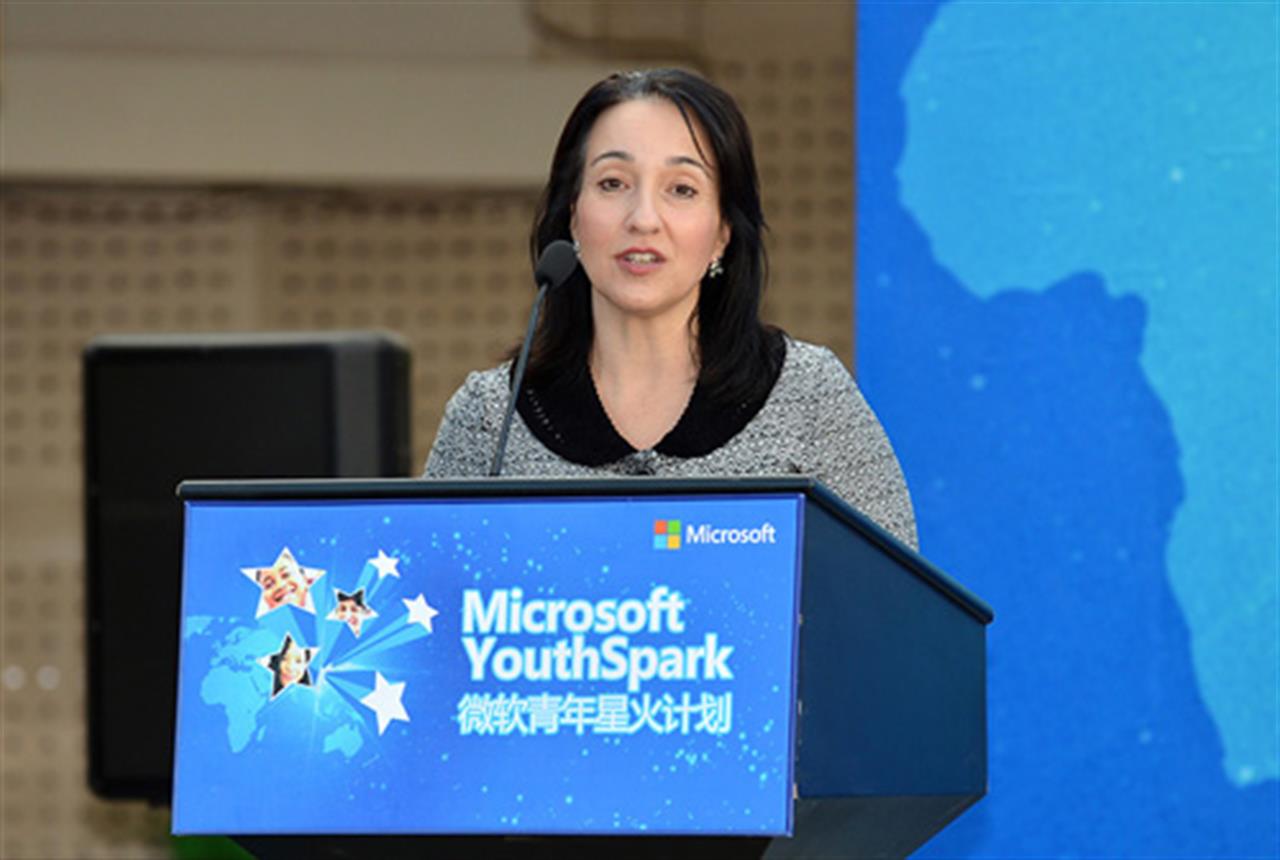Over the last 30 years Microsoft donated 1 billion dollars to charity. We have met Lori Harnick, general manager for citizenship and public affairs at Microsoft to talk about how a company can help local communities and why CSR is so important for a business strategy.
What does a general manager for citizenship do? And why does a company need such a position?
A general manager for citizenship and public affairs, oversees and leads public affairs work at a global level. I supervise CSR work in terms of our own programs and policies and practices of how we run our business as corporate citizens, how we manage the privacy of our customers’ data, how we protect the human rights of our employees around the world, how we serve our community and how we support the growth of our community. Microsoft is a global company and it’s important that we invest in our communities and that we communicate.
How can a company promote active citizenship?
In a number of ways. First of all it must operate as a good citizen by providing jobs and treating their employees fairly. On top of that companies need to contribute to the long term growth and health of the society and the community. What can we do to contribute to raise the economic and social progress of the communities? What can we do with others? Whether those are governments, partners, non profits or competitors. What can we do together? The challenges that we are facing are very complex you can’t just follow one path, you have to bring all the paths together.
How do you think CSR has changed in the last two years?
I think there used to be a time when companies felt that in order to demonstrate their commitment they would simply write a check and gave it to an organization, then we entered a period when companies realized that it was not enough, that there was more they could offer. Companies became more active throughout the business. Now I think we’re in a third era, in which companies are doing CSR work from a more strategic point of view. Their aim is to help the community but also to help their business. I think nowadays companies are trying to build programs that are both for profit and have a social purpose.
How important is CSR in a company marketing strategy?
I think it’s more than just marketing, I think it’s a business strategy. When we decided that we would focus our citizenship work on empowering young people around the world, the main reason to do that was because if you look at the future it’s in our young people and if you don’t invest in young people, you don’t invest in the future. Young people love technology and if we can reach them through something they love and we can help them advance themselves through technology then we’re investing in their future and in the future of our community for all of us. In addition to that, we as a company need those young people we need them to advance so that they become the innovators of tomorrow, we would love to hire them we would love for them to help us grow with our company, to continue to innovate and be a leading company. Frankly we also want to sell to them, we want them to love our products. We want to reach them and we see that today young people more than any other time are very active in their community. We see an opportunity, we put technology in their hands to enable the change that they want to make in their own world and in doing so we build a relationship with them.
Everybody knows Bill Gates’ philanthropic commitment. Not only he is the founder of Microsoft but he’s also the founder of the Bill&Melinda Gates foundation. Is there some kind of heritage he’s left the company?
I think there is actually a heritage. From the very early days the employees and the early executives believed in CSR. We’ve just celebrated 30 years of our employee giving and volunteering program. The program slightly changes from one country to another but in the US for every dollar that an employee spends we give a dollar and for every hour an employee spends volunteering, we donate 17 dollars. Yes, I think it is really part of the DNA of our company.
Cosa fa VITA?
Da 30 anni VITA è la testata di riferimento dell’innovazione sociale, dell’attivismo civico e del Terzo settore. Siamo un’impresa sociale senza scopo di lucro: raccontiamo storie, promuoviamo campagne, interpelliamo le imprese, la politica e le istituzioni per promuovere i valori dell’interesse generale e del bene comune. Se riusciamo a farlo è grazie a chi decide di sostenerci.

